
Zenzile Miriam Makeba, nicknamed Mama Africa, was a South African singer, songwriter, actress, and civil rights activist. Associated with musical genres including Afropop, jazz, and world music, she was an advocate against apartheid and white-minority government in South Africa.
Malaika Nakupenda Malaika is a Swahili song written by Kenyan musician [Fadhili Williams]. Many people mistake it to be Malaika song by Tanzanian, Adam Salim of 1945. This song is possibly the most famous of all Swahili love songs in Tanzania, Kenya and the entire East Africa, as well as being one of the most widely known of all Swahili songs in the world. Malaika in this context means "angel" in Swahili, and this word has always been used by the Swahili speakers to refer to a beautiful girl.

Hope is the twelfth album in the live praise and worship series of contemporary worship music by Hillsong Church. The album reached No. 3 on the ARIA Albums Chart.

Classical Baby is an American animated television series for young children and families directed by Amy Schatz and produced by HBO. The animation was created and designed by Maciek Albrecht and MaGiK World Animation. Classical Baby is designed to introduce young children to masterpieces from the worlds of music, art, dance, and poetry. This series first aired on HBO Family on May 14, 2005.
Jonas Mosa Gwangwa was a South African jazz musician, songwriter and producer. He was an important figure in South African jazz for over 40 years.

Belafonte Returns to Carnegie Hall is a live double album by Harry Belafonte. It is the second of two Belafonte Carnegie Hall albums, and was recorded May 2, 1960. It peaked at No. 3 on the Billboard Pop albums charts.
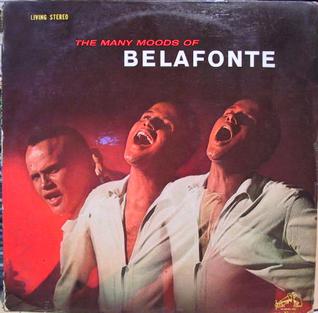
The Many Moods of Belafonte is an album by Harry Belafonte, released by RCA Victor (LSP-2574) in 1962. The album features performances by South African trumpeter Hugh Masekela and vocalist Miriam Makeba.
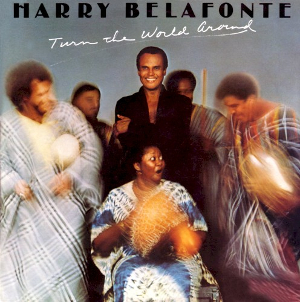
Turn the World Around is an album by American singer Harry Belafonte, released in 1977.

Angel Eyes is a studio album by the American musician Willie Nelson, released in 1984. Ray Charles dueted on the title track. The album peaked at No. 116 on the Billboard 200.

An Evening With Belafonte/Mouskouri is an album by Harry Belafonte and Nana Mouskouri, released by RCA Victor (LPM/LSP-3415) in 1966.
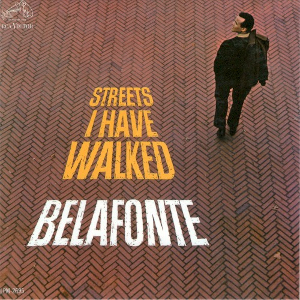
Streets I Have Walked is an album by Harry Belafonte, released in 1963. The album contains songs from around the world as well as gospel songs. It reached #30 on the Billboard Albums 200, making it his last studio album to reach the top 40.

Belafonte on Campus is an album by Harry Belafonte, released in 1967.

Belafonte Concert in Japan is a live album by Harry Belafonte, released in 1974. The album was Belafonte's final release for RCA Records, concluding a 21-year association with the label.

Belafonte '89 is a live album by Harry Belafonte, released in 1989. A truncated version of the album was released in the U.S., featuring only 10 out of 15 tracks. The international CD release was also truncated, featuring 13 tracks. It was also released in Germany as Stationen in 1990, and 1993. The CD release of Stationen from 1990 contains all 15 tracks.
The Belafonte Folk Singers were a vocal group who were active from 1957 to 1965. They were named after singer Harry Belafonte, for whom they originally formed in order to serve as a backing group for recording and concerts. The group was mostly led and conducted by Robert De Cormier, also billed as Bob Corman. Milt Okun sometimes conducted the group as well.
"Soweto Blues" is a protest song written by Hugh Masekela and performed by Miriam Makeba. The song is about the Soweto uprising that occurred in 1976, following the decision by the apartheid government of South Africa to make Afrikaans a medium of instruction at school. The uprising was forcefully put down by the police, leading to the death of between 176 and 700 people. The song was released in 1977 as part of Masekela's album You Told Your Mama Not to Worry. The song became a staple at Makeba's live concerts, and is considered a notable example of music in the movement against apartheid.
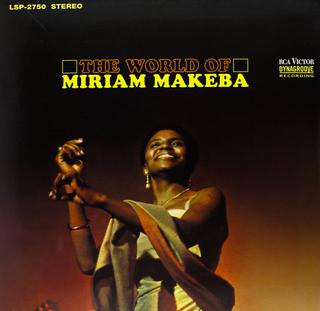
The World of Miriam Makeba is the third studio album by Miriam Makeba released by RCA Victor. It charted at #86 on the US album chart. Hugh Masekela was credited as the conductor.

The Voice of Africa is the 1964 fourth album of Miriam Makeba issued by RCA Victor. It charted at #122 on the US album chart.

Sing Me a Song is a 1994 album by Miriam Makeba. It was her first album recorded in South Africa, in a studio in Mmabatho, Bophuthatswana.
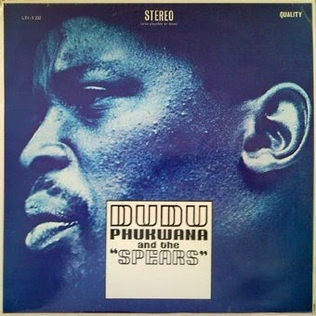
Dudu Phukwana and the "Spears" is the debut album by South African saxophonist Dudu Pukwana and his band, the "Spears." Produced by Joe Boyd, it was recorded in 1968 at Sound Techniques in London, and was initially released on vinyl in 1969 by Quality Records, a subsidiary of the Trutone label. In 2020, the album was remastered and reissued by Matsuli Music as a double-LP set with nine previously unissued tracks that were recorded in 1969, and that feature a number of guest artists such as Fairport Convention's Richard Thompson and Simon Nicol.















